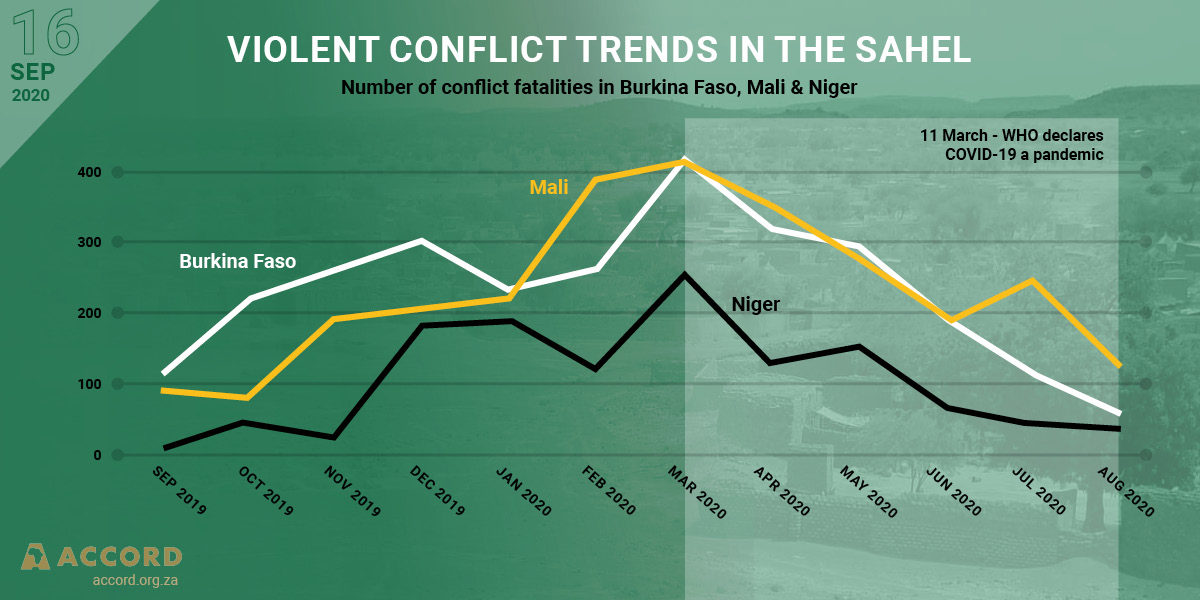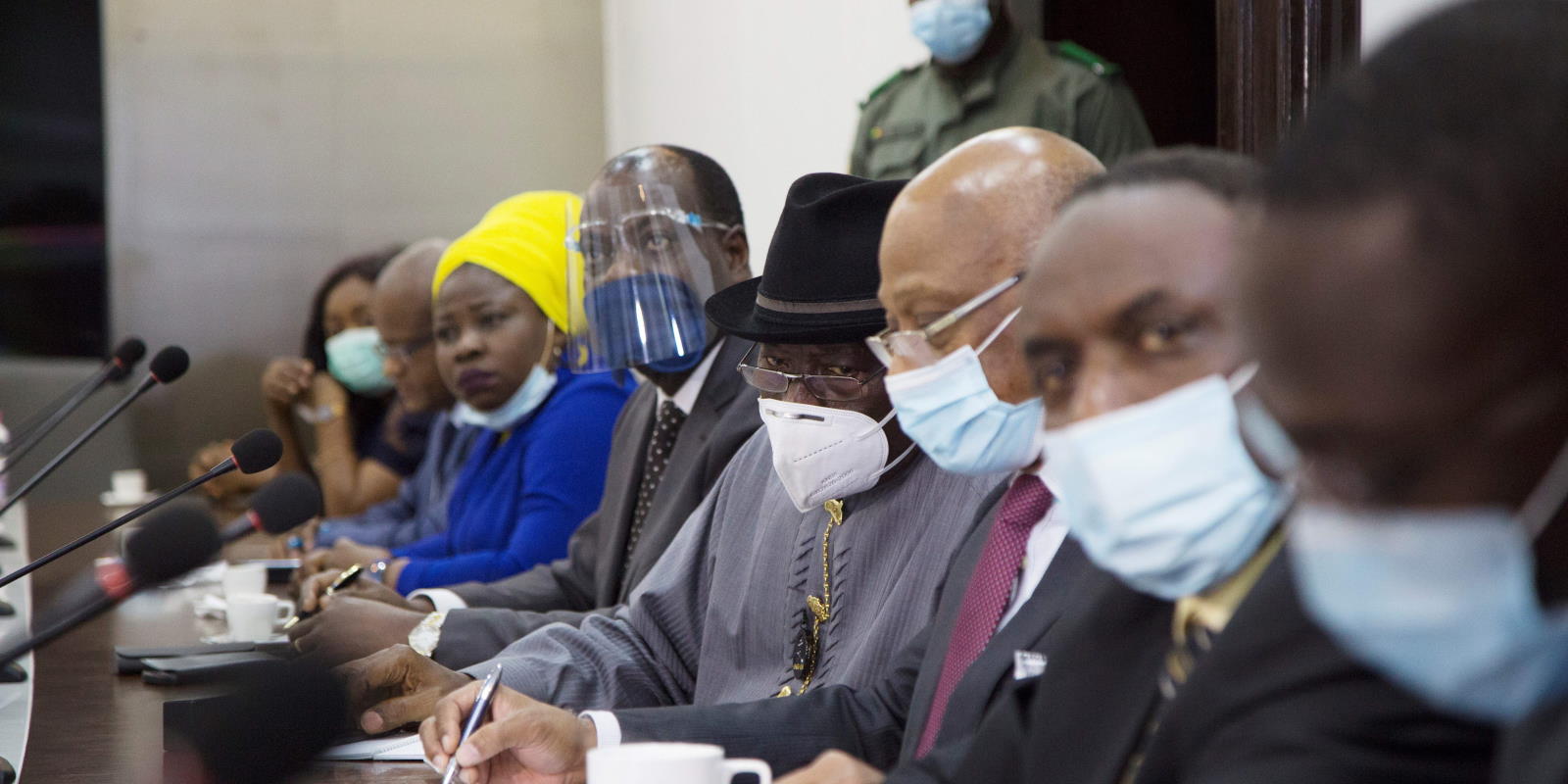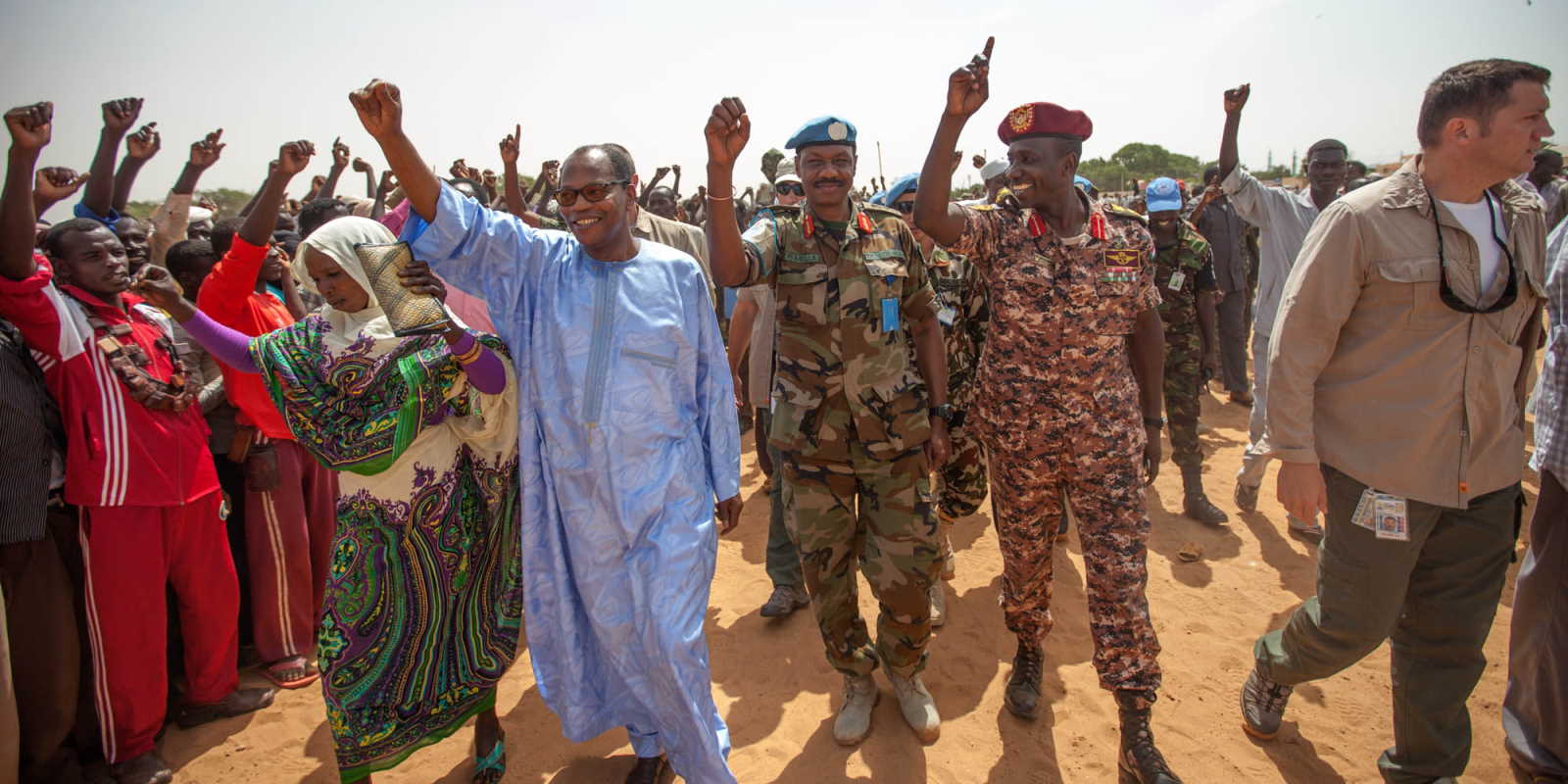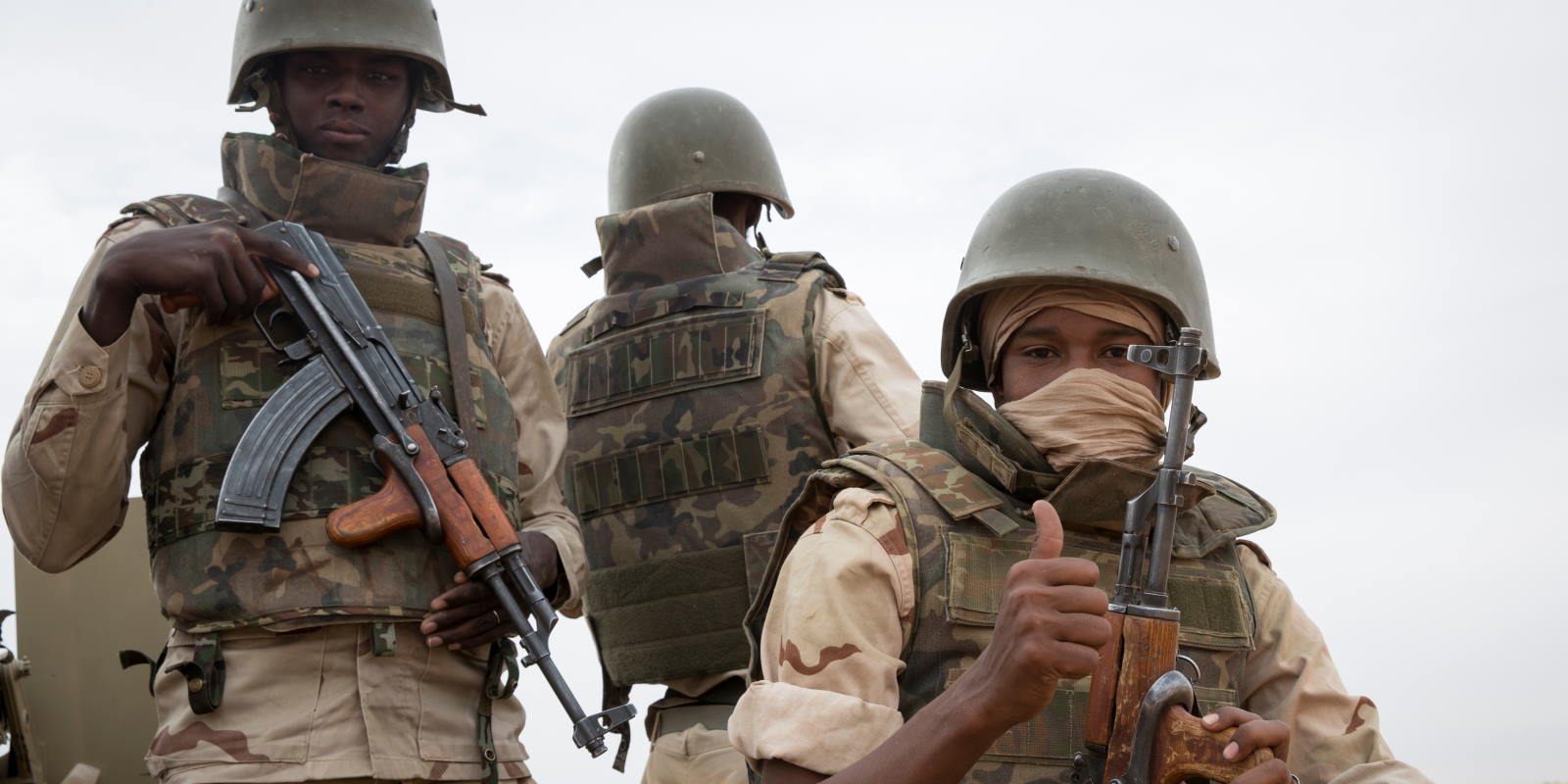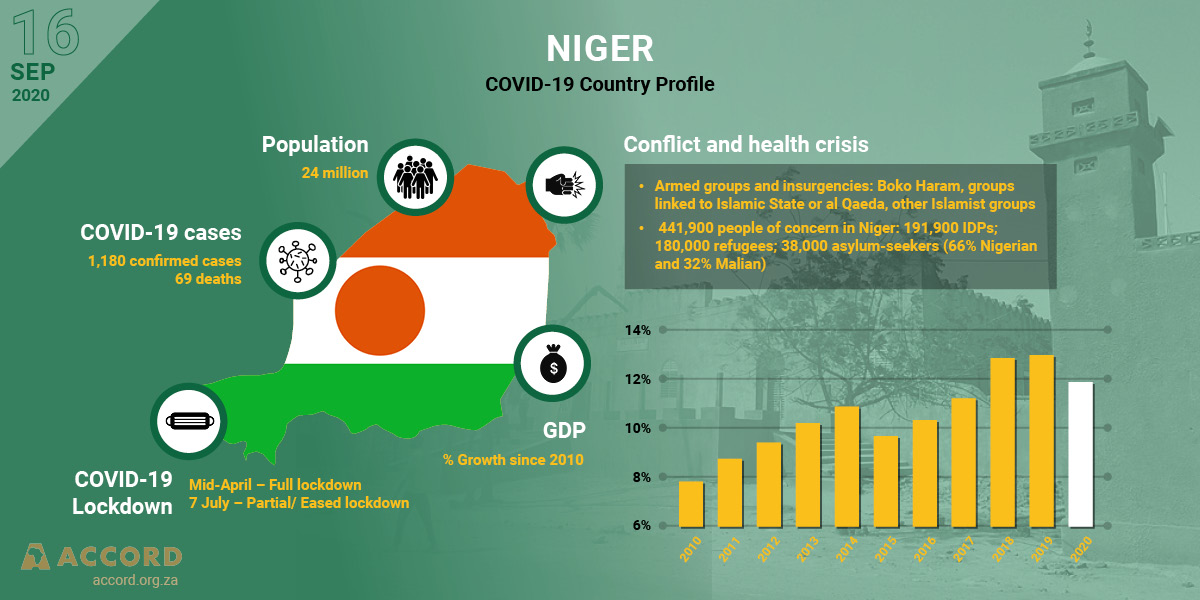This week’s edition focuses on the Sahel, especially Burkina Faso, Mali and Niger. Former president Pierre Buyoya, the Special Representative of the Chairperson of the African Union Commission for Mali and the Sahel, writes about how COVID-19 has become a threat multiplier in a region that is already under strain.
Mohamed Ibn Chambas, the Special Representative of the United Nations Secretary General for West Africa and the Sahel, argues that whilst the trajectory of the pandemic is still evolving, it has already had a major impact on the political, security, economic and humanitarian dynamics in Sahel countries.
Maman Sambo Sidikou, the Executive Secretary of the G5 Sahel Secretariat, calls for strengthening the resilience of the Sahel region by investing and amplifying what he terms ‘Sahelian agency’ to conceive and implement interventions that combine local governance, cross-border value chains and human development.
Laouali Mahamane is the focal point for the Alliance for Rebuilding Governance in Africa (ARGA) in Niger, and he points out that Niger, by virtue of its geographical position, is the country most affected by insecurity in the region, due to persistent attacks by non-state armed groups in its western region bordering Burkina Faso and Mali, and in its eastern region (the Lake Chad Basin), where Boko Haram is active.
Morten Bøås and Natasja Rupesinghe from the Norwegian Institute of International Affairs (NUPI) find that none of the Sahel countries are severely directly affected by COVID-19 at this stage, but while the effects may mainly be indirect and accumulating, the consequences are an additional burden on political and social systems that are already close to the brink.




